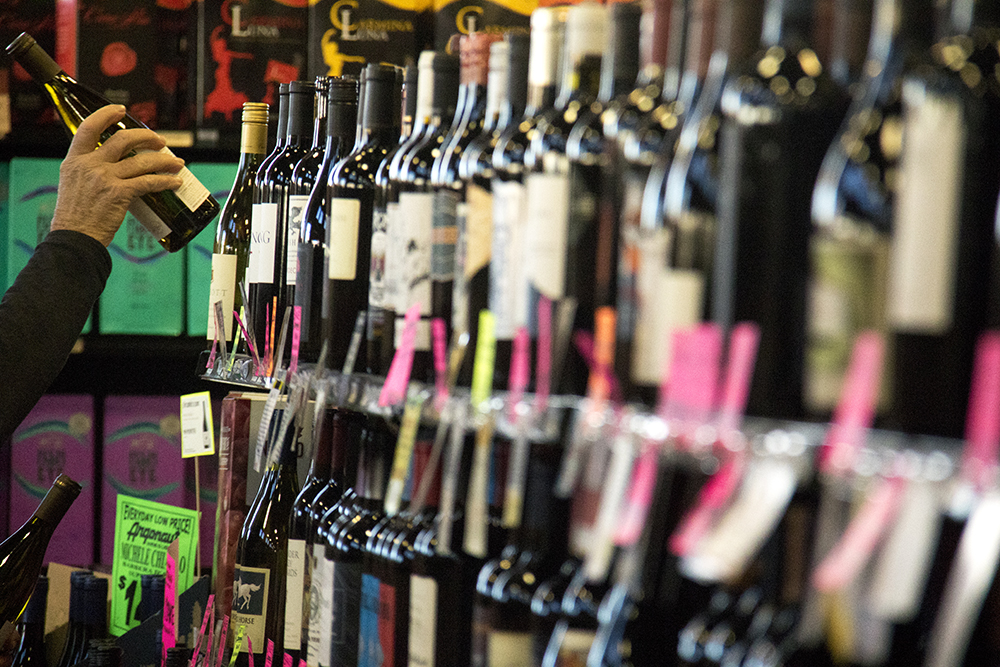
Updated 11/14/22 at 5:40 p.m.
The fate of Proposition 125, which would allow Colorado grocery stores to sell wine, remains undecided as counties continue to process their final ballots from last week’s midterm election.
As of Monday evening, the contest stands at 50.41 percent in favor to 49.59 percent against. The measure appears to be leaning toward victory, with yes votes outpacing no’s by a tally of more than 19,000, according to the Secretary of State’s office. But thousands of ballots have yet to be counted and results could change in the coming days.
“We hope there's still some votes out there,” said Chris Fine, executive director of the Colorado Licensed Beverage Association, the state’s largest association of independent liquor stores, which opposes Prop 125. “But we're also realistic that things haven't been trending in our direction, and we understand that.”
Under current alcohol laws, most chain grocery stores can sell beer, but not wine. Prop 125 would allow supermarkets to sell wine starting on March 1, 2023.
Its passage would not require any new licensing, but would instead expand stores’ existing licenses for beer to cover wine. Convenience stores with licenses could also sell wine.
Most supermarkets would still be barred from selling hard alcohol.
More convenience at the grocery store, but at what cost to mom-and-pop liquor and wine shops?
National grocery chains and tech companies were the main proponents of the measure, spending millions to promote the effort.
Wine in Grocery Stores, the measure’s main issue committee, applauded the outcome.
“We’re pleased that Coloradans will soon be able to pick up a bottle of wine when purchasing groceries. Consumer habits are evolving, and it was inevitable that either this election, or one soon thereafter, that Colorado would become the 40th state to have wine in grocery stores,” Rick Reiter, the campaign director for Wine in Grocery Stores, said in a statement.
The campaign argued that Coloradans wanted more convenience when it came to shopping for alcohol.
“They want Starbucks, a deli, a COVID booster shot, organic produce and a specialty cheese section at the grocery store, along with beer and wine,” said Sheila MacDonald, a representative of the Wine in Grocery Stores issue committee.
Supporters and opponents of the measure dispute what its effect could be on Colorado’s independently-owned liquor stores.
Opponents argue the expansion of wine sales will deal a major blow to independent, family-owned liquor stores. Following the expansion of beer sales in 2019, sales at many independent shops took a hit, Fine said.
“Some of our members recorded losses between 30 to 40 percent,” Fine said. “And that would've had a terrible effect, but then the pandemic happened and that was a lifeline to many of our liquor stores.”
Supporters argue the claims are overblown.
Prop 125 is the only alcohol-related measure from this year’s election that stands a chance at passing
Voters rejected two other measures by wider margins — Prop 126 would have legalized delivery and Prop 124 would have increased the number of stores a liquor store chain could operate.
“We are disappointed that thousands of Colorado small businesses will miss out on vital economic opportunities that third-party alcohol delivery would have provided,” Reiter said.
Fine said the wine in grocery stores question likely won over voters who recently moved to Colorado from another state that already had those types of sales in place.
“We’ve had such a huge influx of folks from states where it’s already a thing,” Fine said. “My opinion is they probably thought, ‘Why don’t we already have that?’”
Small liquor store owners reacted to the close race outcome with disappointment.
“It’s too bad people move to Colorado for the independent businesses that make it great to live here and then they vote against them,” said Lisa VonFeldt, owner of The Wine Seller and Spirits Too in Denver.
VonFeldt’s family opened her shop in 1976. Since then, a Safeway, a Trader Joe’s and a King Soopers have popped up within six blocks of her store.
She plans to start offering more boutique selections and up customer service to try to compete, she said
“We hope to keep our customers who are loyal,” VonFeldt said. “We’ll probably eek through. But when and if liquor is the last nail in the coffin, you’ll probably see stores like us close.”
What's next?
It could be weeks before the outcome of Prop 125 is made official. Based on current vote tallies, the measure will likely trigger an automatic recount due to its razor-thin margin.
Under Colorado law, that must take place within 35 days after the election. Recounts typically don’t produce a different result than the unofficial tally.
Fine, director for the CLBA, said supporters don’t plan to concede until all the ballots are counted.
“We respect the process,” said Fine. “We will fight for our members to the very, very end.”
CPR’s Will Cornelius contributed reporting.









